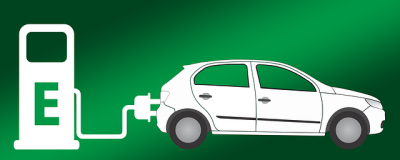I have read in many articles that some people think there is not enough lithium in the world to support our transition to electric cars, and the needs for energy storage in batteries.
And that is not very clear to be true, although they are right to be concerned about it, because lithium is a scarce and limited material in Nature. It is called "white gold" for a reason.
According to a recent report by the U.S. Geological Survey , it is estimated that we have 88 million tons of lithium on Earth, of which only 22 tons are accessible for extraction. The rest is not considered to be economically viable to extract.
But it is also true that a decade ago only 13 million tons were estimated, since new deposits are being discovered and the means of extraction are improving, thus increasing the viability of lithium to be extracted. In other words, we are a little better off than we seemed to be 10 years ago.
To manufacture the battery of an electric car, 8 kg of lithium is needed, and a simple division tells us that with 22 million tons we can manufacture batteries for 2,700 million cars, which is more than double the number of gasoline cars currently circulating in the world.

That is, it seems that there may be enough lithium for car batteries, but lithium is used to manufacture all kinds of batteries for all kinds of items (mobile computers, etc ... ), so the situation is not ideal, although it seems that it is not hopeless.
A negative side is that lithium is a scarce material on Earth, and even if new deposits are found, it seems that it will remain scarce, and therefore expensive.
In 2021, 105 tons of lithium were produced in the world, and by 2030, if the goals of electrification of the economy were met, 250,000 to 400,000 tons of lithium would be needed, which is almost impossible to achieve because new lithium mines take years to become operational. And this is yet another fact that shows that we are not going to achieve the necessary objectives to avoid the climate catastrophe we are heading towards with the greatest of joy.
And another negative aspect is that in order to obtain lithium, enormous quantities of water are consumed, which also pollute and affect the environment. But on the other hand, I have read about a lithium mine in Manitoba (Canada) that is obtaining lithium in a sustainable and non-polluting way. Which indicates that the extraction can be greatly improved if there is a genuine interest to do so.
The rest is positive, since lithium batteries are being improved to use less lithium in them by modifying their other internal components.
In addition, a lot of research is being done around the world to obtain new batteries with other components that are more abundant in nature and less expensive. But that will take years to reach the market.
With all this, it seems that in the coming years there will continue to be lithium, but scarce and expensive, so lithium batteries will continue to be expensive, and that will not help us to change gasoline cars for electric ones.
Consequently, we will continue to pollute and worsen the situation of our climate, and we will not meet the electrification targets to avoid climate change. In other words, we have a rather black future (I say this because of the color of the pollution).
And I wish to be wrong !!

